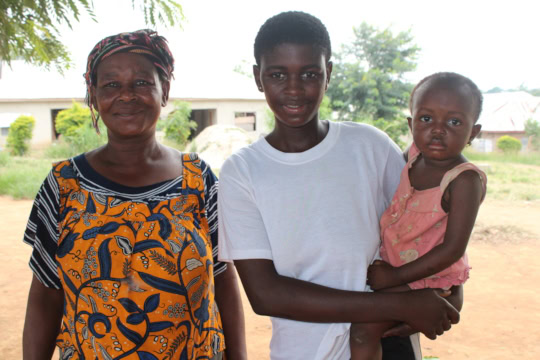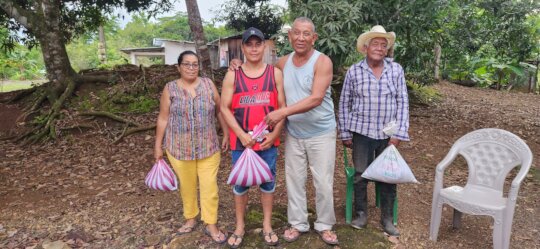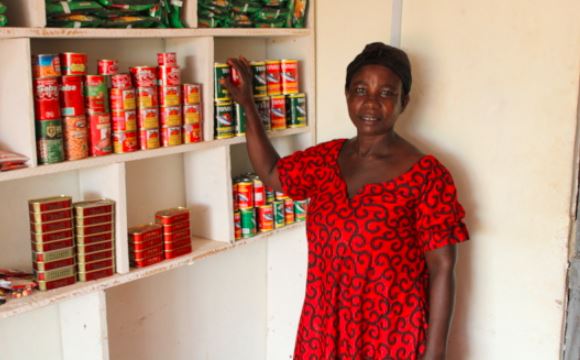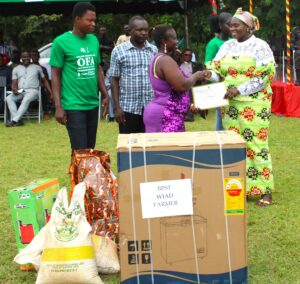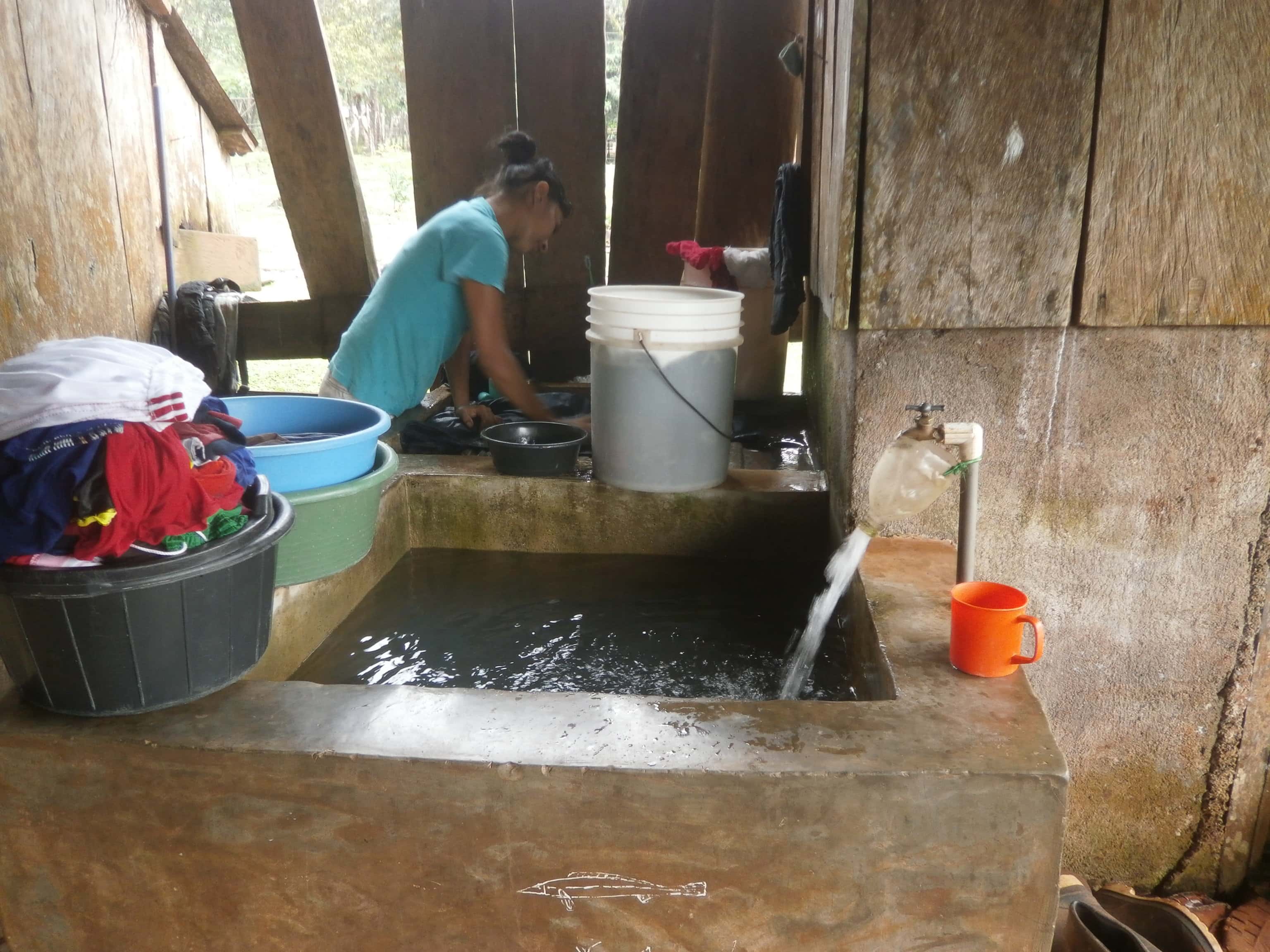
A Look Inside the Happier Lives of Nicaraguans with Clean Water
In the village of Rubén Darío, located in the Nueva Guinea municipality of southern Nicaragua, live 450 people, settled in 80 houses. Most of the citizens are farming families that survive on raising small livestock and planting and harvesting traditional crops such as corn and beans. Rubén Darío is 160 kilometers (99.5 miles) from the Self-Help International main office located in Quinta Lidia. The people of this small farming community have taken the time to sit down with Self-Help International’s Nicaragua staff to talk about how Self-Help’s work has helped them create sustainably happier and healthier lives!
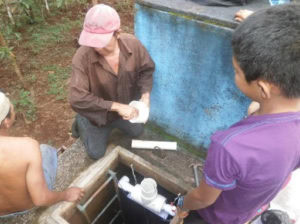
Fredy and his community as he installed the chlorinator last fall.
Fredy Lazo García, 48, currently the treasurer and maintenance worker for the Water and Sanitation Committee (CAPS) in Rubén Darío, told Self-Help all about the community’s new chlorinator and how life has changed for the better since he installed it in September of 2017. Fredy and his wife, Mrs. Elmira González Díaz, have been living in the Rubén Darío community for more than 22 years. According to Fredy, the installation of the chlorinator has been a great advance for his community.
“I came to this community when I was around 25 years old. Back when I moved here we did not have running water in our homes. Then, in 1999, a non-governmental organization (NGO) called the Water, Sanitation, and Community Organization Programme (PASOC) came to the community and built a water system that uses gravity,” Fredy said.
“PASOC put a chlorinator on the concrete tank which worked via a dropping system to purify the water. This system did not last longer than three years because it got stuck and required chlorine every single day. We had to buy the chlorine liquid in Nueva Guinea’s main town. Overall, it was very expensive and difficult to use that old chlorinator,” Fredy explained.
“After that, we spent many years without treating the water. We used to recommend that people in town purify their own water by adding some bleach or by boiling it. In my own house, my wife added 20 drops of chlorine per bucket of water, but many families didn’t do it at all and they used to get sick often.
“Then, at the start of 2017, Walberto Amador from the Nueva Guinea City Hall, told my community about a new CTI-8 chlorinator system that uses just a single chlorine tablet. We were all very interested in learning about the new system. So, we attended a training session for a chance to learn more about this CTI-8 chlorinator. We immediately liked the system because it seemed like it would be easy to use and manage. It just needed one chlorine tablet added and needed less maintenance. We liked the idea of not having to come back and forth to check on the chlorinator or to add more chlorine everyday like we had to do with the old system,” Fredy continued.
“This new chlorinator is better, easier to manage, and it has produced better results. Each tablet lasts 12 days, then we drop in another chlorine tablet to continue the treatment process without any breaks between access to clean water.”
Mr. Feliciano Miranda Sánchez, 52, CAPS president and lifelong community member in Rubén Darío, also shared his feelings about the CTI-8 chlorinator.

Feliciano Miranda Sánchez as he was telling us his story!
“The people in our community are happy to have their water treated! Now, most people ask for the water to be chlorinated, because they feel safe drinking the treated water as opposed to the raw water. They really love being healthy!” Feliciano said. “This new attitude toward clean water is a lot different from the way we all used to feel about water. The chlorine flavor is not very strong using the new chlorinator tablets and it is very easy to regulate and maintain.
“When we run out of chlorine tablets and the people do not smell chlorine in their water, they ask us, ‘What happened?’ We explain to them that we already sent somebody to get some more chlorine from Nueva Guinea. The whole town, my own family included, have already gotten used to drinking treated water.
“We have even added another new water source to the community! The mayor gave us a plastic tank to store and provide more water,” Feliciano added. “We are now looking to acquire another CTI-8 chlorinator for this new tank to ensure all the drinking water in our town is chlorinated.”

Janet Blandón with other members of the CAPS.
Mrs. Janet Blandón, CAPS secretary, told Self-Help that she always insists on the chlorinating the water to prevent people from getting sick. Janet explained that the second water storage tank will be used by the houses that are farthest away from the first tank because they receive the smallest quantity of water and the least amount of chlorine due to their distance from the first tank. A chlorinator for the second water tank would ensure that even those living in the more remote parts of Rubén Darío receive quality water!
These first-hand accounts demonstrate the positive impact Self-Help’s water program have on the lives of people in Nicaraguan communities. Without the generous supporters of clean water, the citizens of Rubén Darío would still be sick from lack of proper water treatment!

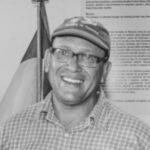 Previous Post
Previous Post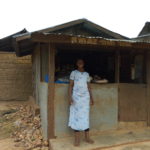 Next Post
Next Post